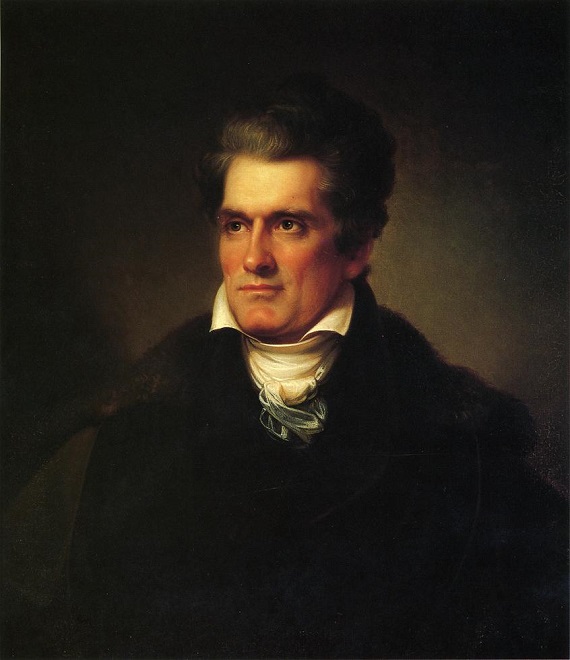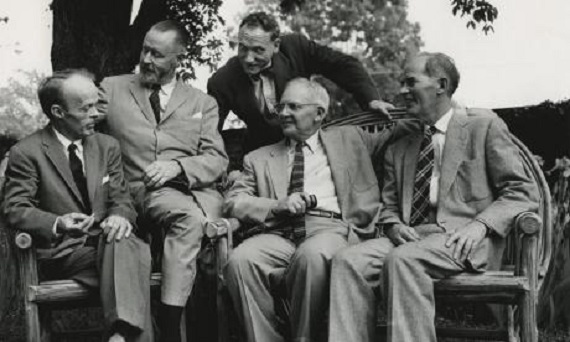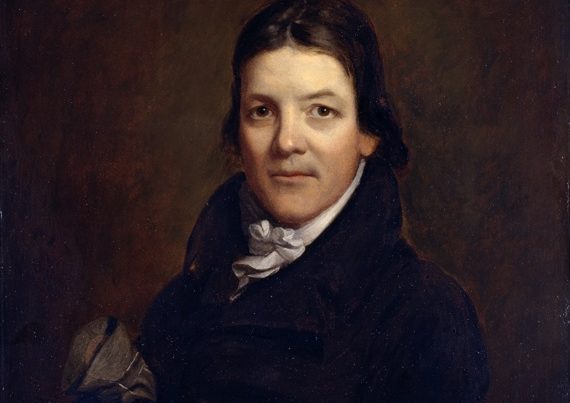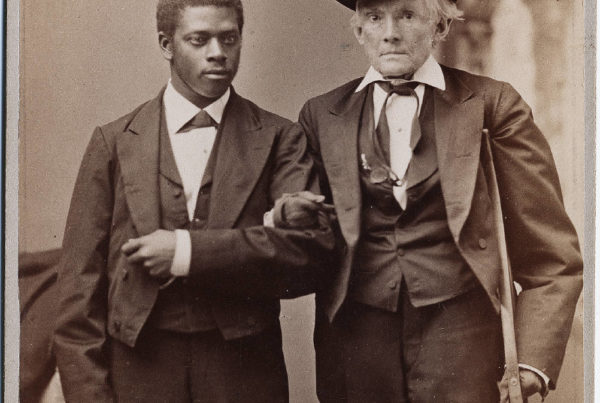Equipped with an abundant knowledge of history, Michael Tuggle has cast a discerning eye on the trends of the present. Not the ‘trendy’ trends but the real ones, those which can guide our steps into the future (as far as the future can be known to us mortals). The trends suggest to him something very hopeful – the probability and suitability of a change in the principle by which human affairs are governed. We have been living for a long time by the organizing principle of command from the top down – something the American Founding Fathers decried as ‘consolidation’– and the opposite of liberty.
Throughout most of the course of Western Civilisation, until a little over two centuries ago, centralised government was regarded as something bad and alien, characteristic of ‘Oriental despotism.’ The Greeks, for example, were divided into self-governing city-states. They were never united under one authority during the time when their excellence in knowledge, art, and government reached levels that still astonish the world. Herodotus, the first historian, ascribed the Greeks’ defeat of the Persian Empire to the resilience flowing from their freedom from arbitrary control. In typical fashion, government-worshipping historians of the nineteenth century forward preached the contrary: that the decline of the ancient Greeks resulted from their lack of unity.
However, a more reasonable interpretation is that, although they were damaged by fighting among themselves, the Greeks met with irredeemable disaster only after Athens had centralised a dangerous power to dictate to the other city-states. Thus, the Greeks’ liberties and creativity ended precisely when they were united under the Macedonian monarchy.
John C. Calhoun, one of the great anti-consolidationist thinkers of the nineteenth century, pointed out that the Romans achieved their greatest freedom and strength as a people when there existed two centres of power – the Senate and the Tribunes – each with an absolute veto over the other’s actions. The workings of the state required co-ordination and agreement among the elements of society rather than dictation from above. Contrary to government-worshippers who complained that the lack of a commanding central authority made society helpless, Calhoun observed that an independent consensus of the parts led to actions that were highly effective and more satisfactory to the whole. No central authority could match the strength of free men who co-operated willingly. Mr. Tuggle enlightens us as to the current appropriateness of Calhoun’s insight.
Even under the Roman Empire (while it was healthy), although policies were sent out from the centre, vast areas of initiative remained in the provinces and cities – in military affairs, taxation, local government, and religion.
The Middle Ages were par excellence the age of decentralisation; there was scarcely any real power that was not local. Kings and lesser lords essentially depended upon the voluntary co-operation of their vassals. The Church, at least in appearance, was centralised in its own affairs, but it preached the rightness of subsidiarity in government. Our modern thinkers who extol the necessity and glory of the nation-state consolidated under one supreme authority tell us that decentralisation was the cause of the ‘darkness’ of those times. Looked at another way, perhaps it was the creative force of many different points of light that illuminated the way of the West out of the darkness – a darkness brought on by the inevitable collapse of the muscle-bound inflexibility of the imperial government. Certainly, the lights came on earliest in the free and self-governing cities, while the Renaissance blazed most brightly in the free and independent cities of northern Italy – not in some centrally-managed society.
In the seventeenth century it was thought that the ‘Sun King’ of France, Louis XIV, had brought centralised government to the height of its possibilities. Louis could oppress individuals; however, he could not – except through the traditional hodgepodge of taxes – oppress entire classes. He could declare wars, but he could no more command all the manpower and resources of the kingdom for his wars than he could the rotation of the planets. It was his nationalist successors of the Revolution and the Empire who marshalled the ability of a centralised government to command a whole society. Their handiwork was copied all over the Western world. The consolidated nation-state became the material and psychological focus of entire peoples while the ensuing conflicts among such states became the prevailing pattern of history. The American Revolution – and the Articles of Confederation and Constitution which followed – preceded the triumph of the nation-state. During the long colonial period, Americans enjoyed the benign neglect of the British Crown. The thirteen colonies barely felt the hand of central government (their citizens scarcely feeling the controlling hand of any government). It was the British governments attempt to end this happy condition that brought them to declare that the thirteen ‘are and ought to be free and independent states.’
The American Founders intended to create a Union which would institutionalise bonds of co-operation among those states and among the new commonwealths that their descendants would create out of wilderness in the future. They did not intend to establish a central authority, such as the one they had just thrown off, from which there was no escape or appeal except by the sword. They dreaded the spectre of ‘consolidation’ which, if allowed, would bring an end to their individual freedom and the self-government of their natural communities. Human associations in community were distinct from and took precedence over governments. Good governments were the servants of society, not its master.
The forces that reshaped the States United into the United State in the middle of the nineteenth century did so only as the result of the destruction of the essential elements of self-government and a holocaust of American lives.
The supposed deep thinkers of the nineteenth century (especially in Germany and the United States) celebrated the brutality employed against their fellow countrymen that was necessary in order to establish the nation-states they desired. Each sang the praises of his own country’s new ability to mobilise the property and allegiances of the masses to the ends of the central state. Nationalist mania stipulated that the centralised state was a prerequisite for the liberation and progress of humanity.
Lord Acton, an immensely learned historian of liberty, was, like Calhoun, a nay-sayer of the nineteenth century, bringing into common reference the phrase ‘Power corrupts.’ The progress of man depended upon ordered liberty; and liberty depended upon the restraint and dispersal of power. Acton demonstrated that freedom in the Western world was a product of restrictions on power that had been painfully accumulated bit by bit over the course of centuries. Taking the long view, Acton wrote, the crushing of the principle of states’ rights in the American war of 1861–1865 was not a victory for liberty, but a defeat.
One wonders why in the twenty-first century anyone should continue to give devotion to the principle of consolidation. The postulate of the all-commanding central government has resulted, for the first time in mankind’s long and painful existence, in what were literally World Wars. The central state has given rulers the power to murder the innocents of their own and other countries by the millions. Even at its least destructive, the central state inevitably, as Calhoun also observed, preys upon the people, or a part of them, for the benefit of those who hold power and their clients.
Surely the premier empirical truth that emerged from human affairs in the twentieth century is that free markets are better than central planning. At least better for society as a whole, aside from those who profit from the Plan. As Tuggle makes clear, confidence in the necessity of centralised power in industrial management, education, and the organisation of many other human affairs has proved to be a delusion over the past two centuries. The wisdom of experience and of insight into the real trends of the present which the author has brought to bear tells us that centralisation has not fulfilled the promises of its apologists. Command from the top down has proven itself to be not only arbitrary and inimical to freedom, but also inefficient and unable to adapt to changing circumstances.
The wave of the future, the cutting edge, the hope of efficiency, abundance, and freedom for societies is just what the Western tradition has always told us – devolution of power to competing and co-operating authorities. There is no lesson that it is more important to take to heart at this moment in time. It seems that John C. Calhoun was right after all.
This is the preface to Mike Tuggle’s Confederates in the Boardroom from www.LewRockwell.com. Reprinted by permission







